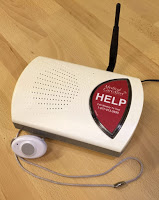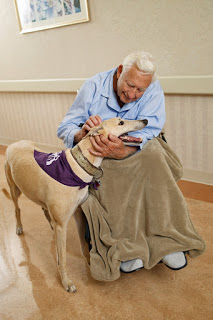Changing the end-of-life care conversation
Changing the end-of-life care conversation
Having a conversation about end-of-life care and advance directives may not be the easiest conversation you'll ever have, but it is one of the most important.

Hospice and palliative care services help people with illnesses no longer responding to curative treatment face death on their own terms, most often at home or in a familiar setting. No matter where a person chooses to receive these services, hospice staff can guide them and their families through difficult decisions surrounding end-of-life care.
Many families feel overwhelmed when told by a physician that a loved one has six months or less to live. A physician may use the terms "palliative care" or "hospice care," which often raises questions about the details regarding these services.
Both hospice and palliative care are patient- and family-centered health care options that address physical, emotional and spiritual pain. Hospice is limited to terminally ill patients who meet Medicare's eligibility requirements and focuses on enhancing comfort and quality of life during the final months of life - without curative intent. Palliative care is available regardless of the diagnosis and may or may not include curative options along with relief from the symptoms, pain and stress of a serious illness. Families of patients in hospice care gain access to caregiver education and training, help with difficult decisions, respite care, and bereavement services, among others.
Medical Care Alert works closely with Hospice agencies, ensuring the correct action plan is set up to respond to the patient's needs. Often times, the Hospice agency wants us to notify them first before dispatching help. Automatic Fall Detection pendants are also helpful if the patient is non-verbal or may not be able to press the button themselves in an emergency.
There is no "One size fits all"
Hospice and palliative care can be delivered at home, in a nursing home, a dedicated hospice facility or an acute care hospital. These services have come a long way since the first U.S. hospice facility opened in Branford, Connecticut in 1974.
 According to Joseph Shega, MD, senior vice president and national medical director for VITAS Healthcare, the nation's leading provider of end-of-life care, "we started as pioneers in this area of health care about four decades ago and it has been gratifying to see how the practice of hospice and palliative care has truly transformed the way people think about and manage end-of-life experiences." He explains that "it's so important to preserve comfort, respect and dignity in the face of terminal illness."
According to Joseph Shega, MD, senior vice president and national medical director for VITAS Healthcare, the nation's leading provider of end-of-life care, "we started as pioneers in this area of health care about four decades ago and it has been gratifying to see how the practice of hospice and palliative care has truly transformed the way people think about and manage end-of-life experiences." He explains that "it's so important to preserve comfort, respect and dignity in the face of terminal illness."
A growing number of Americans are choosing to access hospice services, which are covered by Medicare, Medicaid and most private insurance. In 2014, the National Hospice and Palliative Care Organization (NHPCO) reported nearly 2 million Americans received hospice care, and according to AARP, among those 50 to 64 years old, 71 percent want to "age in place," in their own homes. When people are in control of where and how they face the end-of-life, they can focus more time on experiencing meaningful moments with loved ones. A monitored medical alert system can help a loved one live at home longer, with the ability to get help at the press of a button in an emergency.
How to start "The conversation"
If you were unable to speak for yourself, do your loved ones know what kind of medical care you would want? Do you know what they would want?
 Despite the topic's importance, only 27 percent of Americans report having talked with their families about end-of-life care. The best way to make your medical wishes known is to create an advance directive and share it with your family and your doctor.
Despite the topic's importance, only 27 percent of Americans report having talked with their families about end-of-life care. The best way to make your medical wishes known is to create an advance directive and share it with your family and your doctor.
Have the conversation and don't wait for a crisis. Failing to communicate healthcare choices can lead to anguish, family conflicts and unintended costs that can result when patients no longer can tell their loved ones what kind of care or which "heroic measures" they would accept or reject.
Talk to your loved ones-briefly, in depth, frequently, lightly, seriously-about your wishes. We suggest using milestone events-wedding, anniversary, birthday, retirement, graduation, downsizing move, family holiday-to hold "what if" conversations with loved ones. Keep it light but heartfelt. You may be surprised: letting your loved ones know your wishes could start a frank conversation among the generations about terminal illness, funerals, religious beliefs and other end-of-life concerns.
If you or a loved one is ready to talk about end-of-life care options or would like to find out more about hospice care or how to start the conversation, VITAS can help.
Visit www.vitas.com/hospicemonth or call 1-877-531-6798.
- Article courtesy of BPD




